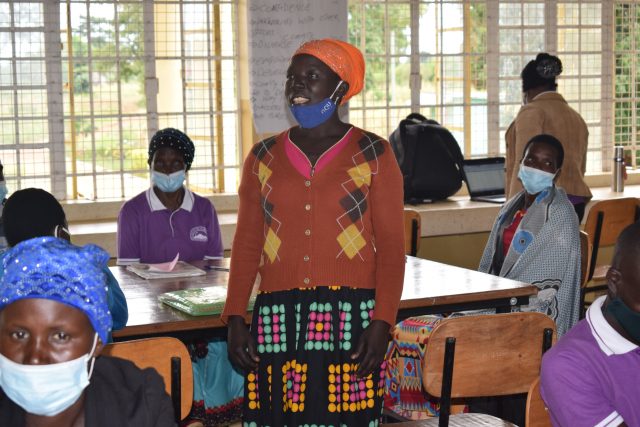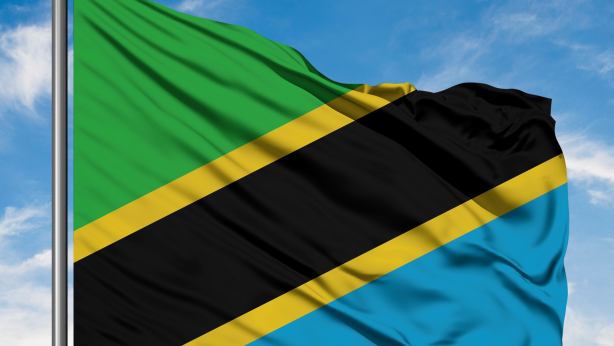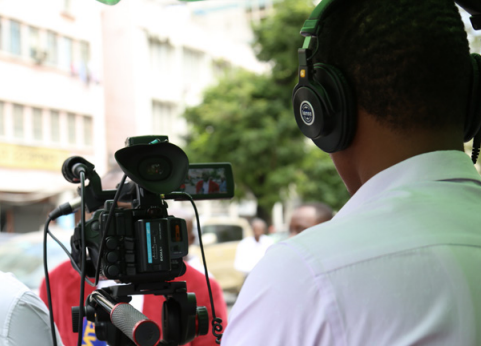Against Her? – did COVID-19 erode progress against sexual and gender based violence?
During a visit to Moyo District in December 2020, I learned that 33 cases of Sexual and Gender-Based Violence (SGBV) were reported by telephone call to the Trans Nile Broadcasting Service (TBS), a local radio station, in the first three months of the partial COVID-19 lockdown.
Located in Uganda’s West-Nile region, Moyo is one of the 38 districts for whom the lockdown was extended to slow the rate of community transmission. At the time of my visit, the general election campaign season was at its peak. All public conversations focused on the politics of the day leaving no room to discuss other important issues affecting the communities.
The 33 cases represent women and girls ‘lucky’ enough to live in villages with good mobile phone coverage and local radio signals. This allowed members of the community to call the radio station and report these unfortunate incidences. For many women and girls experiencing violence, their cases are never reported for a number of reasons.
The UN Declaration on the Elimination of Violence Against Women defines Violence against women (VAW) as either gender-based violence or sexual and gender-based violence (SGBV) and as violent acts primarily or exclusively committed against women or girls. It asserts further that they are a form of hate crime perpetrated against women or girls simply because they are female.

The cases reported in Moyo reflect a much bigger and deeper problem in our society. In 2016, Uganda Demographic and Health Survey (UDHS) reported that one in four (22%) women aged 15-49 experienced sexual violence at some point in time. In 2017, UBOS reported that one in eight (13%) women had experienced sexual violence in the 12 months preceding the survey. Twaweza’s citizens’ survey of 2017, reported that almost half (47%) of Ugandan women aged 15-49 had experienced violence at the hands of their current or former partner. Whereas the Uganda Police reported a modest 1.9% decrease in domestic violence from the 13,916 reported in 2018 to 13,693 reported in the Annual Crime Report (2019), I worry, going by my experience in Moyo District that these numbers have changed for the worst in 2020.
Did COVID-19 and the lockdown erode the [modest] progress made in protecting and safe guarding women and girls from sexual and gender-based violence? What more must be done to stop reversals in the future when calamities strike? How best do we protect the women and girls for them to realize their fullest potential?
Behind the numbers of victims of sexual violence are our daughters, mothers, sisters, cousins, aunties. Their life will never be the same because of the physical and psychological trauma they have suffered. There is a two-year-old girl who was defiled and badly torn by her stepfather. There is a four-year-old whose private parts were badly tattered by her guardian for persistent bed-wetting resulting in three surgeries including one for fistula to repair the damaged body tissues. There is a sixteen-year-old girl who was defiled, impregnated and forced by the perpetrator (a serviceman masquerading as ‘medical officer’ ‘treating’ malaria patients in the community) to procure crude abortion services to terminate the pregnancy. There is a woman aged more than 40 whose female caregiver tortured her by inserting a bottle in her private parts and applying pepper spray.
Both women and men are involved in inflicting harm and abusing women because they were born female. But all is not lost. The community can rally around the victims to demand that justice is served against the perpetrators.
In the case of the 40-year-old torture victim, her case file was compromised, under the pretext that the injury was ‘minor’ the perpetrator was given a lighter punishment of community service in the village. The entire village rose to demand fairness. They worked with their leaders and engaged the district leaders who in turn sanctioned the file, fresh medical examinations were carried out that revealed the torture had been severe. The earlier minor punishment was rescinded, the perpetrator remanded and is, at this writing, awaiting trial.
This is an example of the powerful role that the community can play to reduce crime and support accountability actions for justice to be served. Of course this is only possible with leaders and are open and ready to listen and work with communities- how can collective community actions be strengthened so that there is greater responsiveness from the leaders?
For all the cases shared no perpetrator had been tried in court. Part of the reason is that in their efforts to comply with COVID-19 standard operating procedures, courts were operating below capacity. But it is an open secret that court processes are extremely slow. How can the grievance redress mechanisms especially the courts deliver justice efficiently?
Fortunately, Uganda is signatory to The UN Declaration on the Elimination of Violence Against Women and has domesticated Article 11 on the Protocol on the Prevention and Suppression of Sexual Violence Against Women and Children by enacting The Domestic Violence Act 2010. This law provides for the protection and relief of victims of domestic violence, punishes perpetrators of domestic violence, compensates victims of domestic violence and empowers the family and children court to handle cases of domestic violence.
A year of school closure due to COVID-19 has disproportionately harmed girls’ immediate and future educational prospects. We must find out how many girls fell pregnant in 2020 and design a special rehabilitation programme that not only addresses their psycho-social needs but also equips them with skills to be active participants in the transformation of the economy.
COVID-19 has exposed the gaps in the social sector, by getting our benchmarks right, we can minimize the long term effects of the lockdown. As we recover from the pandemic, there is a unique opportunity to mobilize different levels of government so that they are resourced, equipped, and motivated to end all forms of violence against women and girls. As individuals, the starting point is shifting our mindset to becoming deliberate about ensuring that every girl and woman is protected from violence and supported to thrive so as to contribute to Uganda’s growth and prosperity.
Together we can!
This post is written by Violet Alinda, Director, Voice and Participation, Twaweza Uganda.


